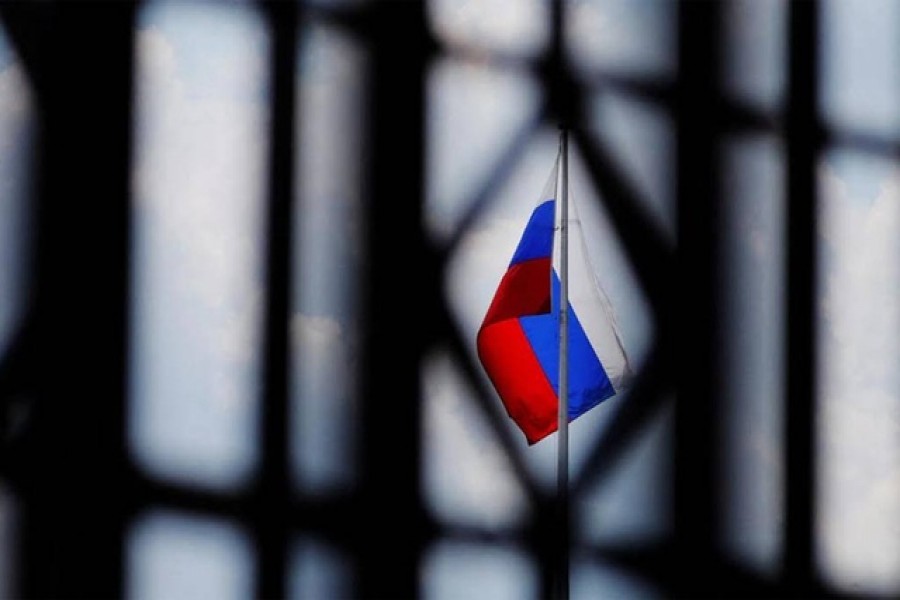
Published :
Updated :

Bill Browder used to style himself as President Vladimir Putin’s biggest enemy. Ukrainian President Volodymyr Zelensky and jailed opposition politician Alexei Navalny, who accuses the Russian leader of poisoning him, probably have a stronger claim to that title. Still, the investor-turned-activist’s latest book, “Freezing Order”, supports his claim. Browder describes how he lobbied governments to suspend the assets and deny visas of those deemed responsible for the death of his employee in a Russian prison.
The push and pull over enacting and expanding the Magnitsky Act, which played out in US courtrooms and backrooms, carries a warning for those enforcing sanctions against Russia today. Moscow is likely using some of the same tactics it deployed against Browder in response to the invasion of Ukraine.
Sergei Magnitsky was a lawyer who discovered a $230 million fraud. His employer, Browder’s Hermitage Capital, was framed for it. Magnitsky was sent to jail, where he was beaten and denied medical treatment. The 37-year-old died in 2009 after spending a year in prison without charge. Guilt-ridden Browder made it his mission to make life difficult for people he held responsible for Magnitsky’s death.
Thanks to Russia’s laissez-faire approach to data privacy, Browder and his team were able to obtain information on how billions of dollars were laundered through European banks. They collaborated with journalists and, with the help of the leaked Panama Papers, followed the trail back to Putin himself. Browder’s team found transactions that linked $800,000 of the $230 million to Sergei Roldugin. The cellist and friend of Putin didn’t answer the allegations, but said the cash disclosed in the Panama Papers came from donations.
Russia deployed lawyers, consultants and police to stop Browder. He evaded summons and arrest warrants and fought back in the media. At one point then-President Donald Trump was even considering handing the businessman over to Russia for questioning.
The assassination of Kremlin critics, including the 2015 shooting of opposition leader Boris Nemtsov next to Red Square, served as a reminder of the risks Browder was running. Other methods appeared less deadly: Browder describes attracting the attention of a 6-foot blonde beauty in Monaco who he immediately assumes was sent to seduce and trap him.
In its attempts to create obstacles to the Magnitsky Act, Russia had plenty of help from Western lawyers and consultants. Though everyone is entitled to legal representation, some of the antics would raise most readers’ eyebrows. For example, Browder writes he initially hired top US lawyer John Moscow to defend his fund against being framed for the fraud Magnitsky uncovered. The lawyer ignored Browder’s calls and later resurfaced as counsel for a Russian holding company. Moscow argued there was no conflict of interest.
Protecting institutions from corruption is a constant battle. But even in the world’s biggest economy, where multiple agencies crack down on nefarious financial activity, progress depends on individuals. In Browder’s telling, the enactment and enforcement of sanctions is vulnerable to the push and pull of humans and their individual economic interests. One example Browder doesn’t discuss is En+, owner of the aluminium giant Rusal, which had restrictions lifted by the United States because of their impact on the global market for the metal.
Browder does not shy away from settling scores with people who stood in his way. But the entertaining thriller carries a lesson for policymakers too. Lawyers working for Russia will seek to overturn sanctions or limit their scope. It is now tougher to be a Western lackey for the Kremlin. Since Russia invaded Ukraine on Feb 24, the United States and Britain banned the export of consultancy and PR services. Law firms dumped Russian clients en masse. These networks of advisers and lawyers are merely in hibernation, though.
Putin went to a lot of effort to stop or limit the Magnitsky legislation. His invasion of Ukraine dramatically raised the stakes. Oligarchs, banks, businesses and even central bank reserves are under Western sanctions. The break with Moscow has pushed up energy prices, hitting European and US economies. Western economic interests will be central to the argument the Kremlin’s servants will make when they eventually resurface.


 For all latest news, follow The Financial Express Google News channel.
For all latest news, follow The Financial Express Google News channel.